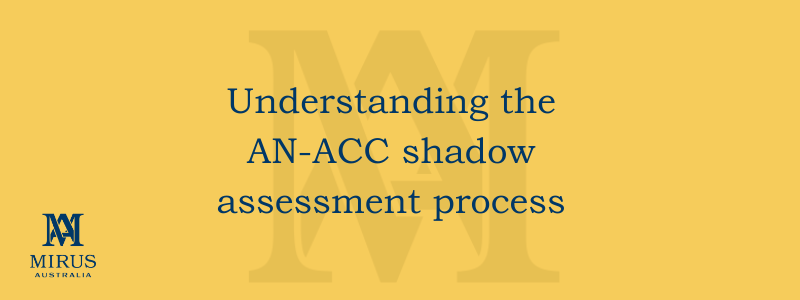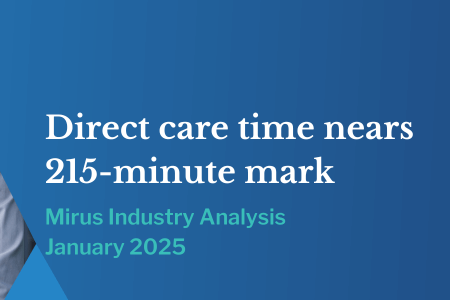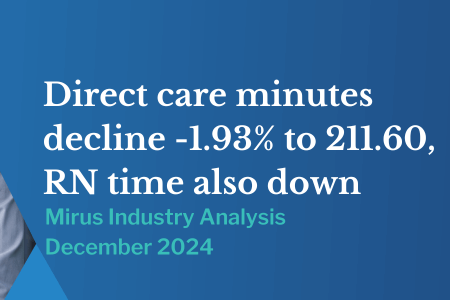Learn how independent assessors are determining your AN-ACC case mix classifications
May 12, 2022 | AN-ACC

By Katie Airey, Quality, Risk and Compliance Lead
With the release of the AN-ACC shadow assessment results on the 8th April 2022, providers have some insight into the AN-ACC assessment process. Providers have reported mixed results on expected case mix classifications, when compared with current funding and consumers assessed functional ability.
It is important providers understand the AN-ACC process and how clinical decisions are made when independent assessors are determining case mix classification for your consumers.
AN-ACC assessors can utilise the following organisational information to support clinical decisions when they complete the AN-ACC clinical assessments;
- Current organisation based clinical assessments and care plans (including external health care provider information)
- Interviews with organizational workforce members, consumers and their representatives
- Bedside assessment, using AN-ACC clinical assessments
It’s important to note, that the AN-ACC clinical assessments were selected to form the assessment tool as they are able to be completed by someone who is not familiar with the consumer. While AN-ACC assessors are able to view the homes clinical assessments for consumers, they also need to make an independent assessment on each consumers functional ability.
The AN-ACC clinical assessments are not intended to provide a comprehensive clinical assessment of consumers for on-going care needs, they do however provide effective functional analysis of consumers functional ability at the time of assessment.
Where case mix results are not as expected, we need to determine what contributed to the variation in the result to prevent wavering results in future assessments.
How is quality assured within the AN-ACC assessment process?
The Department of Health has implemented a framework for continuous improvement throughout the AN-ACC shadow assessment phase, the quality strategy includes:
- Engagement of experienced and highly qualified independent assessors
- Mandatory training and clinical support for assessors
- Built-in validation rules in the AN-ACC Assessment Tool
- Statistical data analytics tool to analyse AN-ACC shadow assessment data
- Dual assessments to ensure consistent outcomes are recorded across independent assessors
Further information can be found here.
In addition, there are quality analysis checks undertaken each week, which identify anomalous patterns. The Department also engaged Taylor Fry to complete a statistical check, the findings report Reliability of the Australian National Aged Care Classification shadow assessments was published on 22nd March 2022.
What can organisations do to improve AN-ACC reassessment outcomes?
It is important that providers continue to ensure the quality of their clinical assessment data accurately reflects consumer care needs. Inconsistencies in clinical data may result in AN-ACC assessment results that differ from predicted case mix classifications.
The AN-ACC funding model consists of 10 sections for clinical assessment;
- Technical Nursing Requirements
- Resource Utilisation Groups – Activities of Daily Living (RUG-ADL)
- Australia-modified Karnofsky Performance Status (AKPS)
- Palliative Care Details
- Frailty – falls and weight loss
- Rockwood Frailty Scale
- Braden Scale for Predicting Pressure Score Risk
- De Morton Mobility Index (DEMMI) – modified
- Australian Functional Measure (AFM)
- Behaviour Resource Utilisation Assessment (BRUA)
Our AN-ACC Essentials short course guides you through the AN-ACC funding model, the case mix classification and the AN-ACC assessments, to provide organisations / individuals a clear road map of the AN-ACC process.
In addition, Mirus will shortly launch an AN-ACC Advanced course, this course is split into two modules covering;
- Operational process
- Related reforms
- Care minutes
- The ACFI to AN-ACC pathway
- AN-ACC assessment process (initial, reassessment & appeals)
- Capability’s approach
- 10 sections of AN-ACC clinical assessment
- Links to the Quality Standards
Visit Mirus Academy for all courses and future course dates


